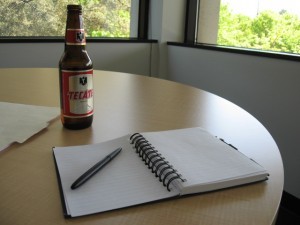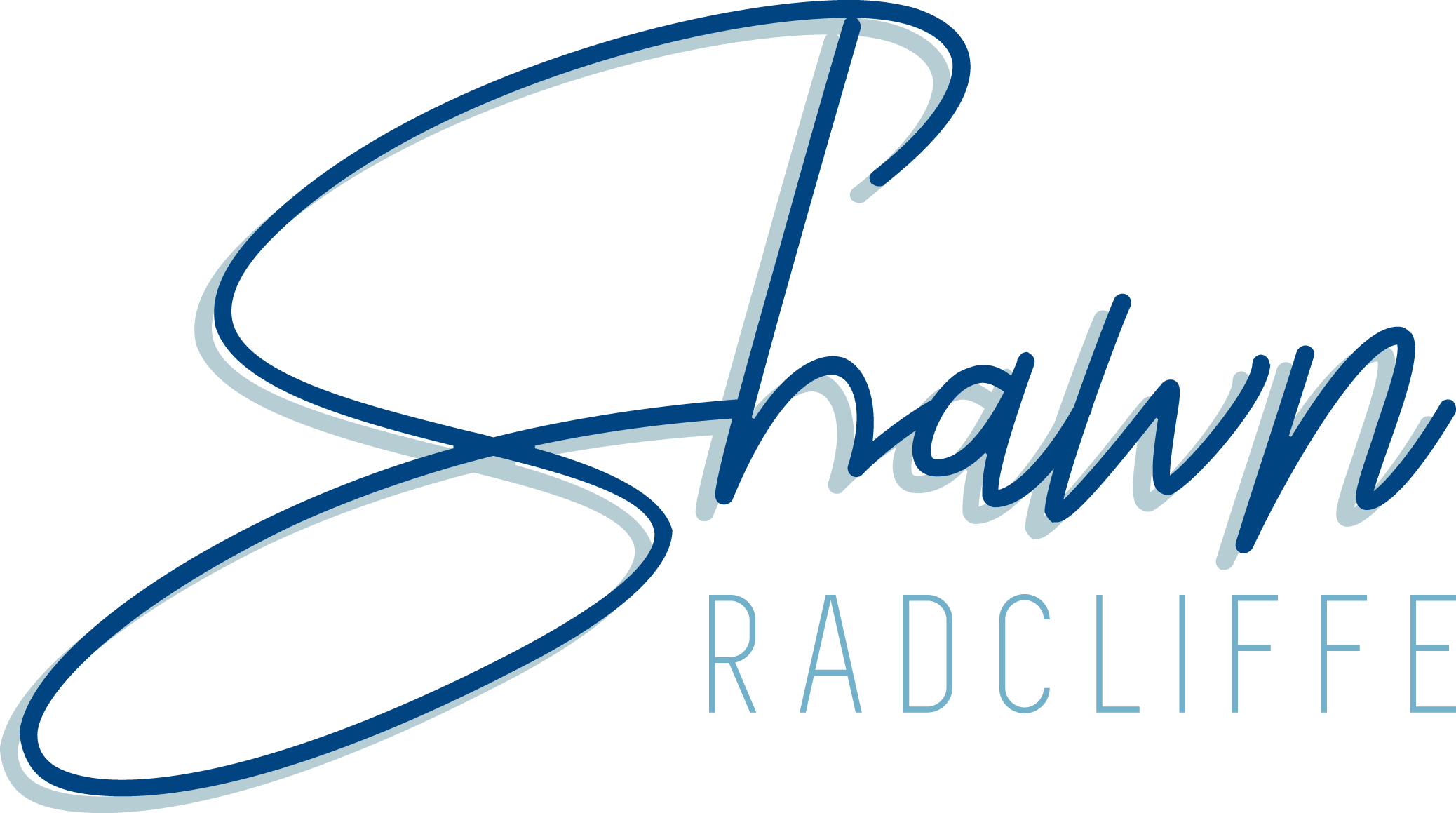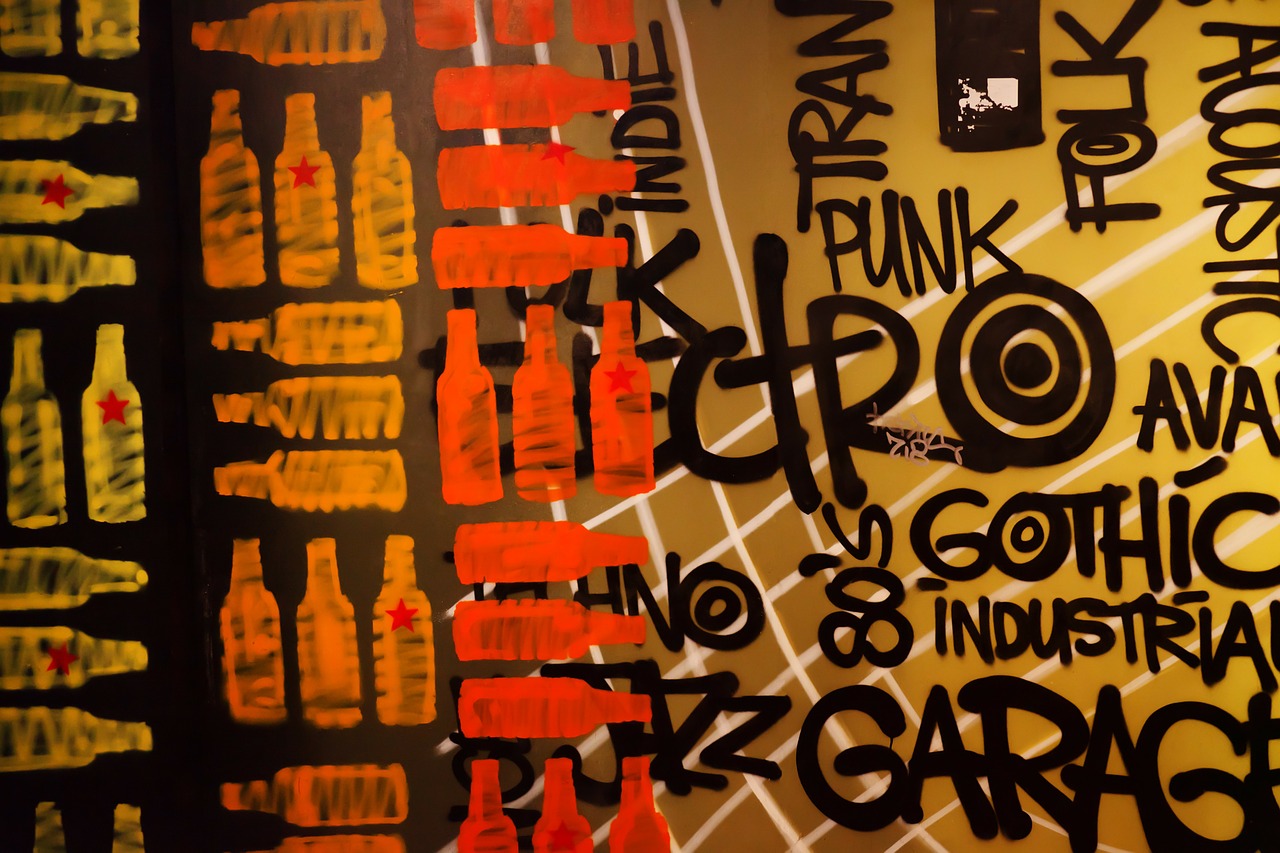Creativity is the bread and butter of fiction writers. Well, that, and alcohol.
Many great writers of the twentieth century struggled with alcohol, including Ernest Hemingway, John Cheever, and Jack Kerouac.
The prevalence of alcohol in writers’ lives is so strong that it often shows up in their stories. John Cheever starts off his short story, “The Swimmer,” by describing the world in which his narrator—and many writers—finds his inspiration: it “was one of those midsummer Sundays when everyone sits around saying, ‘I drank too much last night.’”
How many times does a writer, trapped by the emptiness of the page, stand up from his or her writing desk, stroll over to the liquor cabinet, and pour a shot of bourbon or whiskey, just a little something to get the creative juices flowing?
The connection between alcohol and creative genius is often so strong that beginning writers often think that in order to write, they have to drink. Even for those who rarely—or never—drink, the fear of a creative vacuum can make a quick shot—of creativity, inspiration, or genius—seem all the more appealing.
Some teetotalers may deride alcohol as a writer’s crutch, like special pens and stationery, or books of writing exercises, meant to help you get down to work. In the end, they say, alcohol only deadens that initial spark of genius. Eventually, it will drive you further into the bottle in search of another jumpstart.
 A new study from the University of Illinois at Chicago, though, found that there’s some truth to alcohol’s reputation as a creative muse. Alcohol, it seems, works its magic by making it harder for people to focus.
A new study from the University of Illinois at Chicago, though, found that there’s some truth to alcohol’s reputation as a creative muse. Alcohol, it seems, works its magic by making it harder for people to focus.
To see exactly how alcohol influences creativity, researchers served alcohol to people, and then gave them a series of tests. In most states in the U.S., a blood alcohol level of 0.08 is considered intoxicated. In this study, participants were running just below that, at 0.07.
In this study, people drinking alcohol performed less well on certain tests, such as ones involving working memory. You use this part of your brain whenever you tie your shoes, drive a car, or travel across the suburbs through your neighbors’ swimming pools.
While it would be harder for study participants to get home safely after drinking, they actually did much better on creative problem-solving tests. Researchers say this is because alcohol makes it more difficult to focus, which gives people access to remote ideas. It turns out that linear thinking, the kind you are rewarded for in most classrooms, is anathema to creativity.
So, does this mean writers have free rein to drink whenever they need to create? Probably not. There are downsides to drinking alcohol, and in this study people were only drinking moderately. Besides, there are many other ways to stimulate creativity than by topping off your cocktail in a hallucination of your neighbor’s cabana.
Writing Exercises
- If you are already a drinker, next time you fill your glass after a long day of working—or staring at a blank page—slow it down. Focus your attention on every sensation associated with pouring the drink, hearing the ice clink in the glass, and tasting that first sip. Notice the thoughts that arise. What memories flood into your mind? Which people do you think of? Capture as much detail as you can, but don’t get stuck on creating a story. Let go of the linear and write freely.
- This is one exercise that I’ve done many times. It’s great if you don’t drink, because you can still capture the essence of drinking even without downing three or four shots. Visit a local bar and find a quiet place in the corner to sit and watch people. What do you notice first? Who are the people who are in the bar? Are they regulars or new people? Watch how they interact as they drink? Does this change after their second—or third—drink? Try doing this with more than one type of bar. What you see at a local dive is different—on the surface, at least—from what you find at an upscale cocktail bar.
__________
Photo by Wade Rockett (Some rights reserved)







